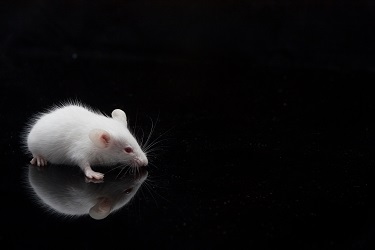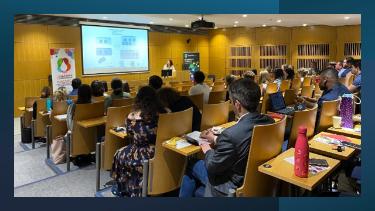Ground-Breaking Genome Project Set to Revolutionise Cancer Care
The 100,000 Genome Project is set to transform cancer research and healthcare—but Ireland may be falling behind. The initiative aims to sequence 100,000 whole genomes from National Health Service patients by 2017, a move that Prime Minister David Cameron predicts "will see the UK lead the world in genetic research within years". Scientists and doctors in the UK will be able to use DNA from healthy and cancerous tissue to decipher which mutations are causing tumour growth. Backed by government, industry and charities, the €375m DNA project will allow a more personalised approach for cancer treatment while also driving better diagnoses of rare diseases.
As thousands of NHS patients in Britain are being invited to donate their DNA as part of the project, SBI PhD researcher Carolanne Doherty asks Walter Kolch, Director of SBI and UCD Conway Institute of Biomolecular and Biomedical Research, what the implications of this initiative are for Irish healthcare.
Carolanne Doherty: The 100,000 Genomes Project has just launched in the UK, what does this mean for the future of healthcare and biomedical research in Ireland?
Walter Kolch: It means we have to catch up. Projects like these will fundamentally change healthcare. Having your genome sequence means knowing about many of the health risks which we inherit, for example high blood pressure, tendency for diabetes or even some cancers. That means we can start preventing diseases rather than only treating them once they have appeared. Unfortunately, there is no comparable project in Ireland. That means we are really falling behind, not only in research but also in patient care.
CD: Does this have implications for cancer research?
WK: Huge implications. Cancer is the paradigm for a disease that is driven by genetic changes, some inherited and many acquired. We can already classify cancer into several hundred different diseases with different prognoses and often also different treatments. But, having the specific mutations of each patient's cancer available will be the medical equivalent of the Hubble space telescope allowing us to see deep into the universe of cancer, and design new treatments that are tailored to treat the cancers of individual patients.
CD: What do projects like these mean for personalised medicine?
WK: Your own genome sequence is as personal as it gets. The genome is the individual template according to which each body has been built. Good doctors have always treated patients rather than diseases. But having genome sequences at hand really makes personalised medicine possible on the molecular level and with a precision we never have seen before. It is a tool that will make the best doctors even better.
CD: How does this research incorporate a systems approach?
WK:The work now concentrates on getting the sequencing done and mapping all the mutations and individual variants. But then we need to figure out what all these genetic changes mean and how they affect our health. This is where systems biology kicks in. Once we have mapped the parts, we need systems biology to put them together and find out how the parts work together. So, systems biology will be hugely important to interpret these results.

